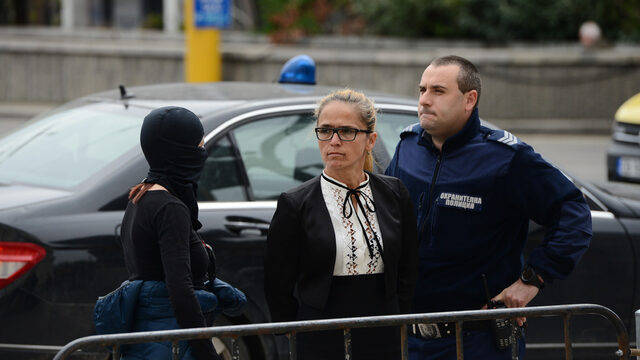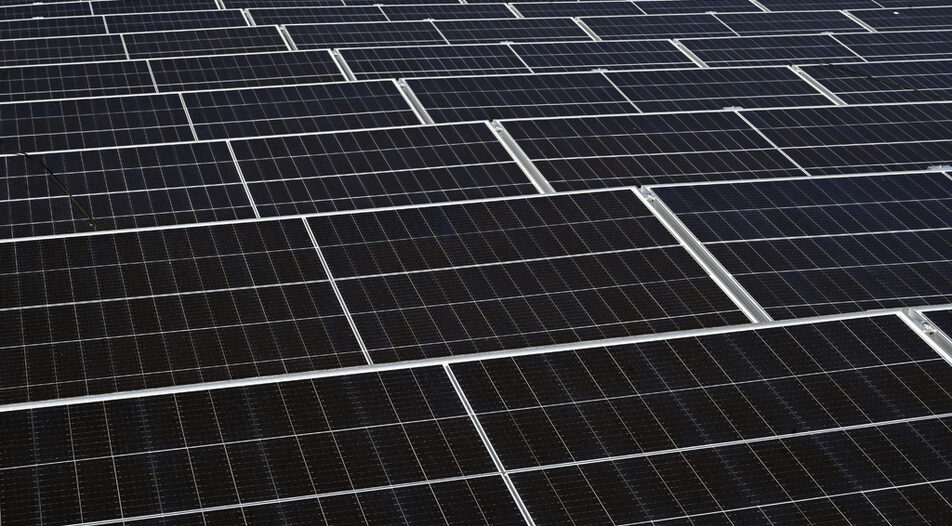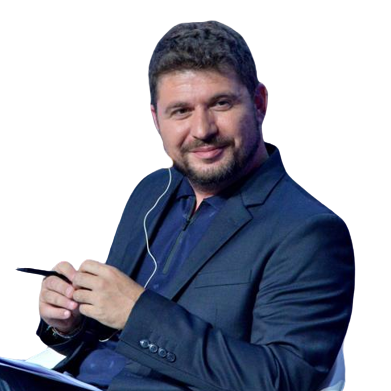If I was given a dollar everytime someone says "Bulgaria could be", I would have been able to... well, not buy Twitter exactly, but at least buy a yacht.
If you had listened to the wellwishers throughout the years, Bulgaria could have had two nuclear plants, we could have been a football superpower, could have had a criss-cross of highways and speed-trains, hosted a winter Olympics and also have a UN Sec-Gen.
Some of those were real options, others were not. Yet none of them translated into reality - hence vindicating the words of a wise Bulgarian writer who once claimed that "It's one thing to want something, another to be able to do it, and third and fourth to actually do it".
After spending ages observing such efforts, I can safely say we lack mostly in the third and fourth departments. It's not that we don't want things, or that we're unable to achieve them, it's just that we can be very inefficient in the actual process of delivery.
This week saw another of those wanna-be moments. "Bulgaria can be a leader in green hydrogen and energy storage systems", said President Rumen Radev in Egypt, where he was attending the COP 27. We also need funds in Europe for investments in new technologies, he advised.
The President is spot-on. Bulgaria could potentially be any of those things. Yet in order to achieve it, it needs to reform a corrupt, clientelistic and backwards energy sector, dominated by state enterprises and vested interests. Or at the very least, keep it away from new technologies and the money to obtain it.
Oh, about the money. I feel obliged to inform our head of state that there are indeed such funds - they come under the names of Recovery and Resilience Facility and Transition Mechanism. Bulgaria, funnily enough, committed to invest a lot of them into energy storage, which was the idea of the previous government, and heavily criticized by Radev's men. The first thing those same men did when they came to power again, was to turn to Russia for negotiations, only to be spurned by Moscow. Which was a bit humiliating, but still worth paying the price for, since it promises to lead to the first Russia-free winter in our energy history.
By the way, the EC is opening up plans for renegotiation this week, so that countries can commit more exactly to energy diversification.
Radev also added that Bulgaria can host the COP 29. Now, I'm kinda tired of those international beauty competitions that are akin to Political Olympics. Also, we are not exactly the cheerleader of the Green energy transition, if you know what I mean (coal regions, anyone?).
But I have to say: if Dubai - this energy-consuming monstrosity of an oil city in the middle of the desert - can host COP 28, then why the hell not Bulgaria which can well be on its way to green energy independence. Ah, if only.
This newsletter is, as usual, helped by
Martin Dimitrov& Anina SantovaPOLITICS
Illegal migration finally reaches ParliamentUnder the guise of a debate, that is. The death of border policeman Petar Bachvarov, who was shot on the border with Turkey by what authorities claim was a Turkish smuggling group, sparked anti-migrant sentiments and calls for stronger border controls. The incident took place near the village of Golyam Dervent on Monday evening and, by Tuesday afternoon, Turkey had informed the Bulgarian authorities it had detained two people believed to be the perpetrator and an accomplice in the murder.
This is the second deadly incident involving Buglarian police officers and migrants this year after two policemen died in an attempt to block a bus transporting illegal migrants in August.
You remember the fence? Well, here's the thing
In a parliamentary hearing of the Minister of the Interior on Thursday he complained that the tragedy had been preceded by years of negligence of border security, with the frontier police requiring an extra 1,300 personnel, off-road vehicles and roads to properly man the border zone. The migration pressure on the Bulgarian-Turkish border this year is on a par with the era of the migration crisis of 2016, when we built a fence, with tens of thousands of migrants caught crossing each month.
Speaking of borders and the price we pay for them, a word, if we may, Hague
On Wednesday President Radev announced he would offer the Netherlands a set of meetings, including with Prime Minister Mark Rutte, aimed at allaying the country's concerns regarding the pending admission of Bulgaria and Romania into the Schengen free travel zone. The Hague is the most vocal opponent of Sofia entering the Schengen space."We are ready to provide additional information and respond to the concerns that the Netherlands may have regarding Bulgaria's readiness to join the Schengen area," President Radev stated in his proposal. The decision needs to be made by December and Bulgaria is heavily invested into finally closing the issue.
And here's also to you, Moscow
The Bulgarian Parliament's decision to approve (at least on paper) military aid to Ukraine led to a series of unfriendly exchanges between Sofia and Moscow. First, the Kremlin put all major Bulgarian weapons producers on its "export ban" list - a largely symbolic move, as they stopped exporting to Russia as far back as the Crimean annexation in 2014 (you can also read this list as "who is selling guns to Ukraine").
In a subsequent press conference, Kremlin spokesperson Maria Zaharova told Russian reporters that the Bulgarian MPs' decision would be seen as "another unfriendly act against our country, which will lead to a further deterioration of the already deplorable state of bilateral relations". In her words, the responsibility for the prolongation and escalation of the conflict in Ukraine, the thousands of civilian casualties, the destruction of civilian infrastructure and the undermining of security in Europe, now rests fully with Sofia and its NATO allies.
This was too much for the usually phlegmatic Bulgarian MFA. It responded with a strongly worded statement, read by Deputy Foreign Minister Kostadin Kodjabashev. "Russia is solely responsible for this war it is indisputable who is the aggressor and who is the victim in this war," said the diplomat.
And to cap it all - no cabinet yet in sight
That's all you need to know, really. The two biggest parties - GERB and WCC - met in front of the cameras in Parliament, found that they had some shared priorities (Schengen, Eurozone, EU recovery money), but also some quite significant differences on financial policy, and you know, that other minor thing - who gets to go to prison. So no, coalition is still not in the works.ECONOMY
We get (some) money! The European Commission approved on Tuesday 1.37 billion euro for Bulgaria under the Recovery and Sustainability Mechanism. The amount represents around 23% of all grants under the Recovery Plan (5.37 billion euro in total). They might as well be the last we see from Brussels for some time, as the next payment of 735 million euro, to be claimed in early 2023, would require a lot of legislative work. This can prove hard for a country that basically only has a Parliament every quarter - for about a week.Women in cyber security - a possible and necessary mission
Women represent a fraction of the global workforce in cyber securitytoday. With the ever-growing demand for cyber security experts and
well-publicized skills shortages, attracting a wider range of talent
into the industry has become critically important.
Read about KPMG's Global Women in Cyber Summit, hosted in Sofia
BUSINESS
Cargo BulmarketRuse-based group buys a German liquid cargo terminal in Devnya. The buyer is part of the group of companies owned by Stanko Stankov. This is thе biodiesel producer Astra Bio-Plant and the deal is with Oiltanking.
Manufacturing
KrassiThe Mayonnaise factory in Plovdiv is expanding with an investment of 6 million levs. The new base will be located in a neighboring property of the currently operating enterprise in the center of Plovdiv and will add another 5169 sq. m of built-up area.
Technology
GigsRemoteENERGY
Parliament approves bill for diversification of nuclear fuel away from Russia The National Assembly tasked the Council of Ministers with finding a substitute to Russian nuclear fuel for the Kozloduy Nuclear Power Plant (NPP) and signing a contract for its procurement by 2024, when the NPP will deplete its current fuel reserves. Until now, the Kozloduy NPP has only used Russian nuclear fuel. The proposal, which was made by the GERB parliamentary group, received the support of 156 MPs, including those of GERB, WCC, DPS, Democratic Bulgaria and Bulgarian RiseWATCH OUT FOR
Christoph EichhornThe German Ambassador was said to be the unlikely go-between GERB and WCC. Ex-President Rossen Plevneliev spilled the beans that the meeting was negotiated in the presence of the Ambassador, while WCC confirmed it happened on his farewell reception.
Kubrat Pulev
Boxing star and two-time world heavyweight title challenger officially became a Political Science major at the University of National and World Economy this week. The boxer has previously alluded to plans to launch a new (obviously patriotic) party, but has not yet made any moves to that end. Given our new cycle of elections every 6 months, he will likely get a stab at it.
Desi Anderson
The first Bulgarian-born politician who ran for state senate elections in the US this week has an unusual story, which reached her native land. Born into a Roma family and adopted into the US in the mid-1990s, Ms Anderson appears to have achieved the American dream, and ran for office on the ticket of the Republican party, albeit unsuccessfully.
Vasil Bozhkov
The lottery mogul in exile can breathe happily after the Supreme Administrative Court declared a 2020 decision of the State Commission on Gambling on his debts "unclear and void". The decision claimed the lottery firm Eurofootball owes the state 329 million levs.
DATE
2025Is the year Desislava Ivancheva will be free again. The ex-mayor of Sofia's Mladost municipality was the first member of the local authorities to be tried for corruption and this week the Supreme Court of Cassation confirmed her 6-year sentence. Ivancheva was the face of the first local anti-GERB movement back in 2016 and she won local elections shortly after. Being an independent and an outsider confronting GERB at the time, she was caught requesting bribes from construction companies and was made an example of what happens when you don't fall in line (pictured here while deliberately made to stay on a busy crossroad in Sofia for 8 hours). As GERB would put it, even corruption was highly organized back in the day..

LOCATION
Dobrich hospitalThe hospital in the northeastern city has taken 136 of its nurses to court for their supposedly illegal strike. After nearly a month of protests to increase their salaries (currently at minimum wage levels, or around 312 euro per month), the medical workers have threatened to stop working.
ORGANIZATION
Save Sofia The NGO led by Sofia Municipal Councilor Boris Bonev, whose main goal is to improve the urban environment, urban transport and the quality of life in the capital, announced that it will register as a political party this week. It immediately invited WCC and Democratic Bulgaria for collaboration in the upcoming mayoral race next year, but the first reactions of some party supporters were decidedly negativeWORD OF THE WEEK
Костница - OssuaryIf you are not a jazz aficionado, you've probably forgotten about Ruth Koleva. Yet the charming singer sprang back into action this week. Or more like, squatted back in action. In a session for Elle magazine, Koleva was pictured squatting over a sarcophagus. Turned out, this was a monument to the fallen warriors of Perushtitsa - a small city near Plovdiv. The mayor of the city unleashed a social media storm, when she requested the prosecution service to charge Koleva with defiling a sacred place.
To be honest, Koleva was exactly right when she pointed out in return, that the place was a dump. It was some sort of a communist tomb for various historical events and had been long forgotten, as obvious from the pictures itself. The mayor, however, requested some funds from the Ministry of Culture to renovate the place.
And as people on social media quickly noted - if only we could get Koleva to squat in other places in need of repair
If I was given a dollar everytime someone says "Bulgaria could be", I would have been able to... well, not buy Twitter exactly, but at least buy a yacht.
If you had listened to the wellwishers throughout the years, Bulgaria could have had two nuclear plants, we could have been a football superpower, could have had a criss-cross of highways and speed-trains, hosted a winter Olympics and also have a UN Sec-Gen.













